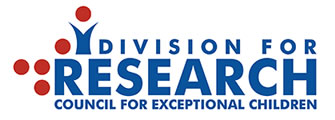
As a parent, you work hard to care for your children’s feelings, but what about your own? All caregivers experience a range of emotions. This is especially true when dealing with stressful things, like caring for children who have special medical, developmental, or mental health needs. Caregivers might be encouraged by well-meaning friends and family to “stay positive” but ALL emotions caregivers have (e.g., guilt, anger, sadness, joy, pride) are valid, important, and deserve attention.
What are some triggers that can cause an increase in distress for caregivers?
Although this is not a complete list, there are some experiences that caregivers report as common reasons for distress. We talk about a few below and discuss common feelings caregivers might have in those situations.
- New diagnoses. Hearing your child has a condition related to their learning, development, physical health, or mental health can be difficult. Many parents experience shock and a combination of other difficult feelings when they first get this type of news. This reaction is normal and will likely fade as you learn more about your child’s condition and how to help them.
- Changes to the plan. Caregivers are often expected to adjust and be flexible in response to changes in the other systems their child interacts with – like school, extracurricular activities, or healthcare providers. Caregivers may experience frustration, disappointment, confusion, and fear in times of transition. Making a list of these changes and sharing them with important people in your child’s life may help you feel more in control and supported.
- Exposure to information. With the internet at your fingertips, you may find yourself overwhelmed with information – some helpful and some unhelpful. Managing this information can be overwhelming and some of what you hear may be scary or Sometimes, it may be difficult to feel hopeful when it seems like you are only receiving negative information. As you’re managing everything you see and hear from social media, school teams, medical teams, and other families – be sure to “check-in” with yourself and notice how you’re feeling.
- Unwanted advice from others. Family members, friends, members of your child’s education or healthcare team, and sometimes strangers believe they are helping by giving you advice on how you should manage your child’s needs. When you receive this unsolicited advice, it is common to feel angry, confused, or Reminding yourself that you are the expert on your child and family can help reduce these feelings.
- Comparison to others and longing for a “normal” life. It is completely understandable to find that you are comparing yourself to others and longing for a “normal” life for yourself and your child. When this happens, you may feel guilt, shame, or sadness. Working to create a “new norm” can help with these feelings.
Remind yourself that many caregivers have these same thoughts and emotions, and you are not alone in feeling this way. However, some people find it difficult to face these hard feelings and might find ways to avoid them through distraction, isolation, diving into social media, or unhealthy behaviors. On the other hand, particularly when learning of a new diagnosis for a child, caregivers often share that they feel relieved that there is now an answer for their child and a plan for moving forward. The bottom line is that caregivers may even go back and forth between experiencing difficult and positive feelings.
There are often more problems if you do NOT pay attention to your feelings. Why is that?
- Ignoring your feelings can cause problems with your sleep, appetite, relationships, and use of coping strategies. For example, you might start to avoid people and places that make you feel anxious even though you used to enjoy them.
- Your emotional health can influence your child’s development, and emotional, behavioral, and social functioning.
- Taking care of your own emotions, reminds you that feelings are an important part of your health. All people, including caregivers, deserve to feel their best.
- Identifying ways to manage stress, anxiety, anger, and sadness can lead to relief that helps you function better daily. That also means being able to better care for your child.
- Caring for your own feelings teaches your children that emotions are okay and that there are ways to help us feel better. For example, showing them coping skills such as deep breathing, doing a relaxing activity, or talking to friends are positive skills your children can learn from you.
So, how can you check-in with yourself about your feelings?
Sometimes it can feel difficult to understand where our strong feelings are coming from, especially when there are challenging or unexpected caregiving needs. When this happens, you can try to “take your TEMP” – a quick way to check in with yourself and organize your feelings and needs. Ask yourself the following:
Trigger: What is the specific situation that is happening right now?
-
- I decided to not go to a friend’s birthday gathering after a day of navigating my child’s appointments.
Emotion: What am I feeling right now?
-
- Exhausted and guilty.
Meaning: What meaning am I giving this situation? What stories am I telling myself?
-
- I’m telling myself I’m not doing enough, like I’m a bad friend for wanting to rest instead.
Plan: What do I need next?
-
- I need to talk with my loved ones for extra support and understanding.
Practicing this skill, and facing your emotions, can build a sense of understanding, even in stressful moments. It can also help give you a sense of agency – this means that you may feel like you have more control over your feelings and the situation. This can lead you to trying helpful coping strategies to improve your wellbeing.
For more information on attending to your emotional needs, visit the following:
https://www.nih.gov/health-information/emotional-wellness-toolkit
https://courageousparentsnetwork.org/topics/taking-care-of-yourself
Salley, C. G., Kenowitz, J., Lee, D., Morgan, C. H., Sexton, K. K., & Caregiver Wellbeing Special Interest Group (SIG) of APA Division 54: Society of Pediatric Psychology (July 10, 2022). Recognizing your many feelings as a caregiver. https://infoaboutkids.org/blog/recognizing-your-many-feelings-as-a-caregiver/
















